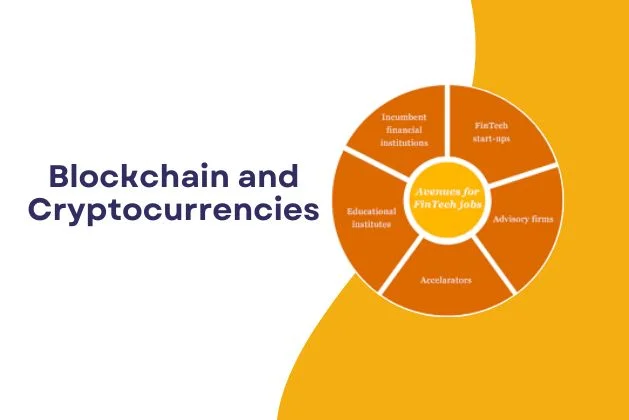Table of Contents
ToggleIntroduction
In recent years Fintech Opportunities, the financial technology (fintech) sector has emerged as a dynamic force reshaping the landscape of traditional financial services.
The intersection of finance and technology has given rise to numerous opportunities, revolutionizing the way we manage money, make payments, invest, and access financial services.
This blog will explore the diverse range of fintech opportunities that are currently transforming the financial industry.
Also Read: Future of Nanotechnology
Digital Payments Revolution

One of the most prominent areas of fintech innovation is in digital payments.
With the rise of mobile wallets, contactless payments, and cryptocurrencies, traditional payment methods are evolving rapidly.
Fintech Opportunities are at the forefront of creating seamless and secure payment solutions, providing users with convenience and speed.
The growing adoption of digital payments presents vast opportunities for entrepreneurs and investors alike.
Blockchain and Cryptocurrencies

Blockchain technology, the backbone of cryptocurrencies like Bitcoin and Ethereum, has the potential to revolutionize various aspects of finance.
Smart contracts, decentralized finance (DeFi), and tokenization are just a few areas where blockchain is making waves.
Fintech startups are exploring new ways to leverage blockchain, offering transparency, security, and efficiency in financial transactions.
Robo-Advisors and Wealth Management

Fintech Opportunities has democratized wealth management through the introduction of robo-advisors.
These automated platforms use algorithms to provide personalized investment advice and portfolio management.
Investors can now access sophisticated financial strategies without the need for a traditional financial advisor, opening up investment opportunities to a broader audience.
Insurtech Innovation

The insurance industry is experiencing a significant transformation with the advent of insurtech.
Companies are leveraging technology to streamline underwriting processes, enhance risk assessment, and improve customer experiences.
Insurtech startups are creating innovative insurance products, such as on-demand coverage and peer-to-peer insurance models, disrupting the traditional insurance landscape.
Open Banking and API Integration
Open banking initiatives are fostering collaboration between traditional financial institutions and fintech startups.
Through the use of Application Programming Interfaces (APIs), banks can share customer data securely with third-party fintech providers.
This enables the creation of innovative financial products and services, ranging from budgeting apps to lending platforms, ultimately improving the overall financial ecosystem.
Financial Inclusion and Emerging Markets
Fintech Opportunities has the power to address financial inclusion challenges by reaching underserved populations in emerging markets.
Mobile banking, microfinance, and digital lending platforms are empowering individuals who previously lacked access to traditional banking services.
This presents a unique opportunity for fintech entrepreneurs to bridge the financial gap and contribute to inclusive economic growth.
Cybersecurity and Regulatory Compliance
As fintech continues to evolve, the importance of cybersecurity and regulatory compliance cannot be overstated.
Fintech companies are actively developing advanced security measures to protect sensitive financial data.
Additionally, navigating complex regulatory landscapes is a challenge that presents Fintech Opportunities for fintech firms specializing in compliance solutions.
Conclusion
The fintech revolution is in full swing, creating a myriad of opportunities for innovators, entrepreneurs, and investors.
From digital payments to blockchain, robo-advisors to insurtech, each sector holds the potential to reshape the financial industry.
As technology continues to advance, staying abreast of fintech trends and embracing innovation will be key to unlocking the full spectrum of opportunities in the rapidly changing world of finance.
Whether you are a startup founder, investor, or consumer, the future of finance is being shaped by the endless possibilities that fintech has to offer.
Frequently Asked Questions (FAQs)
Fintech, short for financial technology, refers to the innovative use of technology to provide financial services. It encompasses a wide range of products, services, and technologies that enhance and automate various financial processes, from banking and payments to investments and insurance.
The digital payments space in fintech offers significant opportunities, including the growth of mobile wallets, contactless payments, and the adoption of cryptocurrencies. Fintech companies are focusing on creating seamless, secure, and convenient payment solutions, revolutionizing traditional methods and opening up new avenues for business.
Blockchain, the underlying technology of cryptocurrencies, is employed in fintech for various purposes. It provides a decentralized and secure ledger for financial transactions, enabling transparent and tamper-resistant records. Fintech applications of blockchain include smart contracts, decentralized finance (DeFi), and tokenization, offering innovative solutions for financial processes.
Robo-advisors are automated platforms that use algorithms to provide investment advice and manage portfolios. In fintech, robo-advisors democratize wealth management by offering cost-effective and accessible investment solutions. Investors can benefit from personalized advice without the need for a traditional financial advisor, making investment opportunities more inclusive.
Insurtech, a subset of fintech, is transforming the insurance industry by leveraging technology to streamline processes, enhance risk assessment, and improve customer experiences. Insurtech startups are creating innovative insurance products, such as on-demand coverage and peer-to-peer insurance models, disrupting traditional insurance practices.
Open banking involves the sharing of financial data between traditional banks and third-party fintech providers through Application Programming Interfaces (APIs). This collaboration enables the creation of innovative financial products and services. Fintech companies can access customer data securely, leading to the development of applications ranging from budgeting tools to lending platforms.
Fintech plays a crucial role in promoting financial inclusion by reaching underserved populations in emerging markets. Mobile banking, microfinance, and digital lending platforms offer individuals access to financial services who previously lacked traditional banking options. This presents an opportunity for fintech entrepreneurs to contribute to inclusive economic growth.
As fintech evolves, ensuring cybersecurity is a paramount concern. Fintech companies are actively developing advanced security measures to protect sensitive financial data. This challenge presents an opportunity for firms specializing in cybersecurity solutions. Additionally, navigating complex regulatory landscapes is another area where fintech companies can create value by offering compliance solutions.



